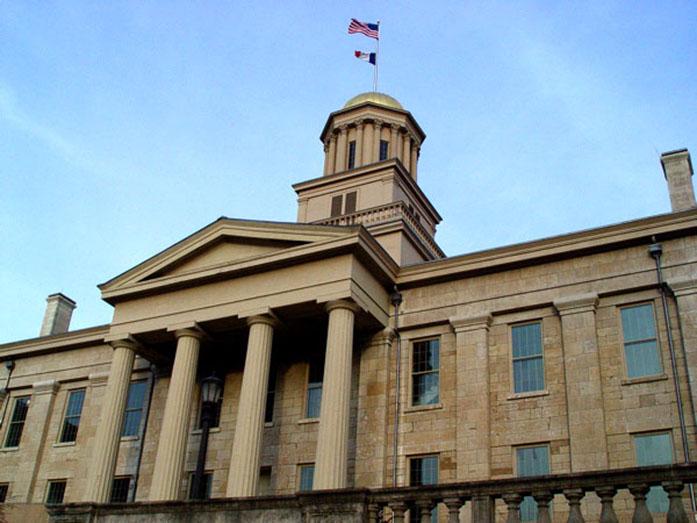By Tom Ackerman
Faculty at the University of Iowa are beginning to look into the process of creating a union.
At a meeting Saturday for the American Association of University Professors in Iowa, the UI chapter discussed union startups and said members would keep an open mind.
“The members of the [association] would decide whether that’s the direction they want to go, and then we’d begin talking with organizers from national [association],” said UI chapter President Katherine Tachau.
Tachau said interest in forming a union was sparked as a result of the perceived lack of transparency on campus during the recent and controversial presidential search.
She said the search process demonstrated “the clear abandonment of normal shared governance that the university has had for the last many many decades.”
Since the state Board of Regents selected business consultant Bruce Harreld as the UI’s next president, membership in the UI chapter has increased about 50 percent, Tachau said.
The regents declined to comment on the possibility of a union.
“It takes a bit of time to get started on this, so what we’re doing at the moment is finding out how widespread the sentiment is,” Tachau said.
As an advocacy branch, the school’s current professor-association chapter does not have powers that an organized union would.
Kari Schuman, Midwest lead organizer at the association, said drafting a collective-bargaining agreement would help to address the issue of transparency on campus.
“I think an overarching theme we’ve seen throughout all of this has been the issue of shared governance and what shared governance actually means,” said. “Being able to define that in the collective bargaining agreement is something that would likely be beneficial for faculty at the University of Iowa.”
While support appears to be growing for faculty organizations on campus, a union could take two or three years to get off the ground, Tachau said.
The UI administration responded to the idea of a union by sending emails to faculty in management positions.
“The central administration of the university sent out some documents to be passed out to department heads,” Tachau said. “Therefore, they would not be eligible to join the union.”
UI officials could not be reached by the time of publication. Tachau said she believes the assumption that those in managing positions are not faculty is incorrect.
Union eligibility would be determined in a negotiation during the organizing stage, Tachau said, and she noted that the decision to create a union has not yet been made.
“The administration might be right, but in essence, they were jumping the gun because we haven’t even decided whether we’re going to have the union drive,” she said.
Tachau was understanding of administration trying to dissuade organization.
“It’s normal. That’s what administrations do,” she said.
Should UI faculty form a union, it would be optional for members to join. Tachau noted that if department heads were considered ineligible, they could still join the association on a national or local level, though they wouldn’t be able to vote on union issues.
“The things that we care about in terms of the profession — you can better protect those things [with a union],” Schuman said.







